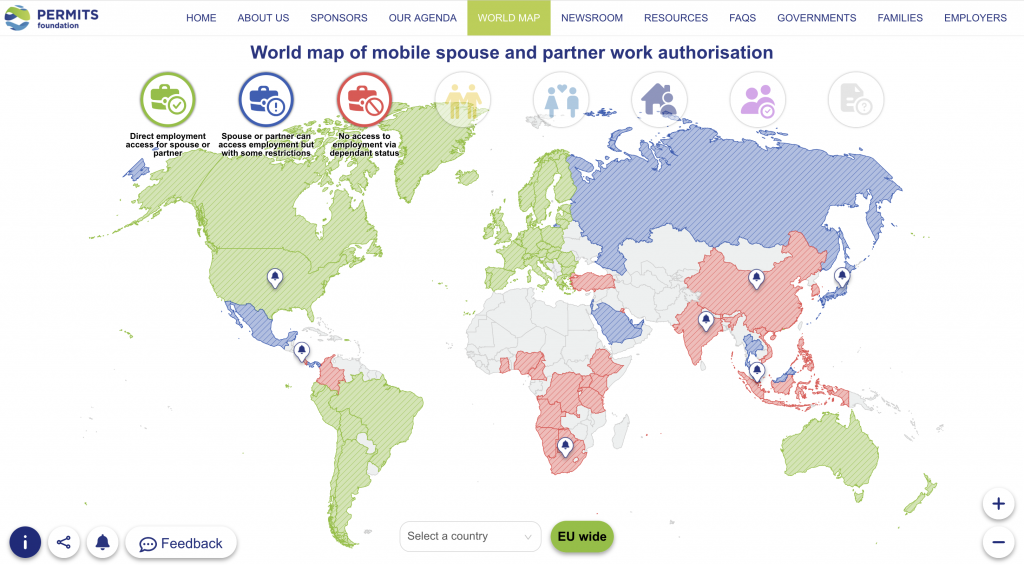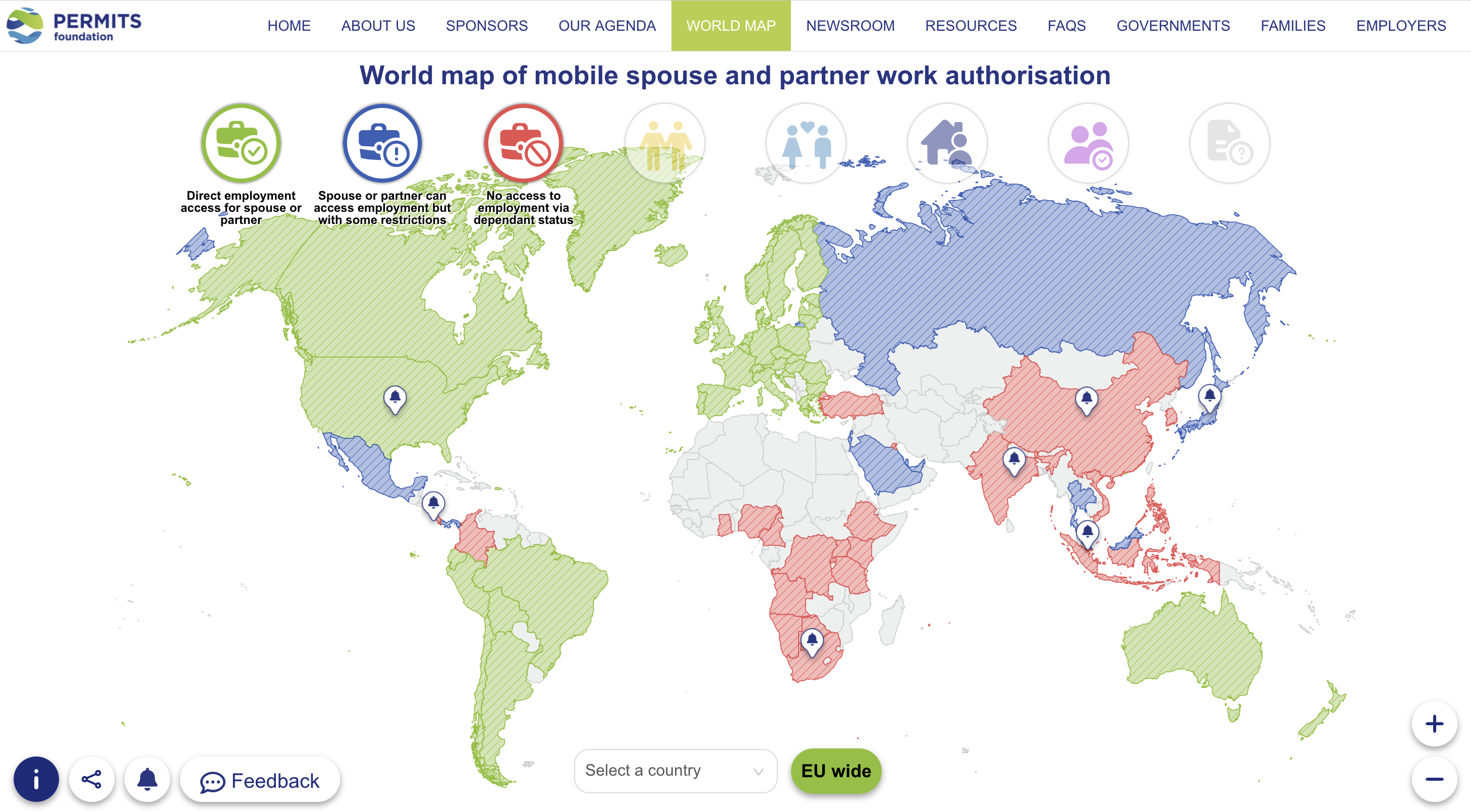True story of Spouse’s Work Visa:
A Key That Changes Everything
When we think about international mobility, we often picture a smooth transition: new job, new country, new opportunities. But for many accompanying spouses, the experience is very different. The lack of a spouse’s work visa can dramatically reshape a person’s identity, finances, and ability to contribute—not just to their own life, but to the host country too. I know this deeply. I’ve lived it.From Country to Country: Four Times I Was Not Allowed to Work
My personal journey as an expatriate spouse spans several continents—and four countries where I was not allowed to work: China, Vietnam, India, and Mozambique. Each of these places brought amazing human experiences… but also legal barriers and deep frustration. In China, I wasn’t allowed to work under my dependent visa. Any professional activity had to be hidden or informal. Same in Vietnam and India, where getting a work permit as a spouse meant either finding a rare employer ready to sponsor me—or giving up entirely – or do black job (some do it). That’s what most spouses end up doing. And it’s not because they don’t want to work. It’s because they simply can’t. In Mozambique, things were different—but still challenging. To work legally, expat partners have to create a company. And not just any company: one with a Mozambican associate, as required by local law. Without that, they are invisible in the job market. Yet I was lucky—because in Mozambique, I’ve already had ABsolutely French, so I was working. And the network of expatriate spouses helps each other navigate the maze. That solidarity changed everything. But let’s be clear: most expatriate spouses are not so lucky. And companies rarely realize how much this legal “detail” impacts the success of their assignments abroad.
The Hidden Risk for Companies: Illegal Work and Missed Potential
When a spouse can’t work legally, three things often happen:- They don’t work at all, which can lead to isolation, frustration, and a loss of self-worth.
- They work informally, which puts them—and their spouse’s employer—at legal and reputational risk.
- They leave the country early, forcing the expat to shorten the assignment or accept family separation.
A Work Visa = A Safety Net
One of the biggest misconceptions is: “They don’t need a work visa because they don’t plan to work.” That’s a mistake. Plans change. Opportunities appear. Children grow up. Spouses reinvent themselves. And when they do, they need to be ready. A spouse’s work visa is not about working now—it’s about having the option to choose later. It’s about dignity, security, and autonomy. And yes, it’s also about contributing to the local economy and to the family’s stability.HR and Global Mobility: Make the Spouse’s Work Visa Standard
Companies have the power to change the narrative. Human Resources and global mobility teams must:- Ask the right questions at the beginning of the assignment.
- Include the spouse’s work visa in the standard relocation checklist.
- Partner with immigration experts to understand the legal context of each country.
- Communicate clearly with families about their options.
- Because assignments fail when families are unhappy.
- Because dual careers are now the norm, not the exception.
- Because empowering spouses builds loyalty, reputation, and real inclusion.
The Permits Foundation Map: A Global Overview of Spouse Work Rights
To better understand where spouses are allowed to work, Permits Foundation offers a brilliant tool: 👉 World Map of Work Authorisation for Expatriate Partners This interactive map shows where spouses can work:- Countries like Canada, New Zealand, and the Netherlands offer generous rights.
- Others, like Saudi Arabia, Japan, or many parts of Africa and Asia, remain very restrictive.
- Some allow work under conditions (e.g., sponsorship, job offer, or company ownership).

My Takeaway After 10 Years Abroad
Looking back on my journey—from not being able to work in China, India, Vietnam—I can say one thing: If you have the chance to request a spouse’s work visa, take it. And if you’re an HR manager: Make it automatic. Ask. Inform. Include it. It costs nothing compared to the cost of a failed expatriation. Because being able to work isn’t just about money or career. It’s about feeling seen, respected, and free to build a meaningful life abroad. If you want to share with me, I’m Armelle Perben, founder of Absolutely French, we can connect on Linkedin.
Absolutely French – Who We Are – Companies Services
Absolutely French is the first French language school entirely dedicated to expat partners and expatriates.
Our mission:
To support dual careers in expat families by helping partners integrate quickly and confidently into French life.
Our method:
Fun, friendly, and innovative French courses that guarantee results — and help build a local network.


Let’s connect!



